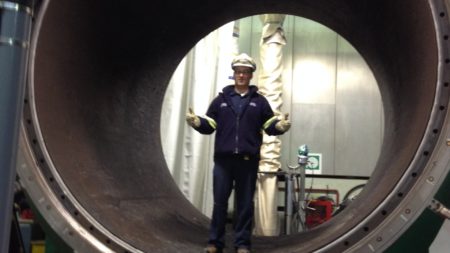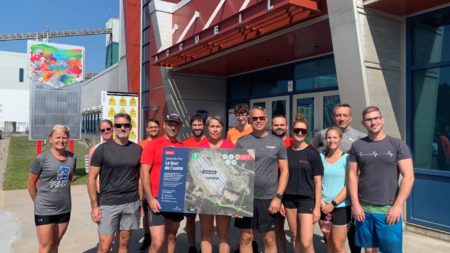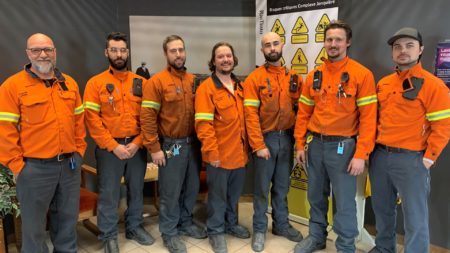Régis Fillion: Helping Others with Courage and Compassion

Bringing people together comes naturally to Régis Fillion, who has recently retired from Power Operations. His empathy and listening skills draw people in, and his great sensitivity and compassion are some of the reasons why so many feel comfortable confiding in him. When facing hardships, Régis stands tall and remains hopeful and positive as he tackles difficult situations head-on. In fact, this is how he deals with Parkinson’s disease every day.
Altruism and mutual aid are important values to you. How did this factor into your career at Rio Tinto?
I was a maintenance mechanic for 12 years, but I was always involved in my community. In 1997, I joined the Health and Safety Committee, and that’s how I became a prevention representative. The well-being and health of my colleagues have always been important to me. It’s only natural for me to lend a hand to people in need. I’ve worked with all the departments, so people know me well and know that they can always confide in me. Plus, I’m an open book—I’m very in touch with my feelings, and that probably puts people at ease and helps them talk to me freely.
In 2018, you were diagnosed with Parkinson’s disease. You then sought out the services of caregivers at Power Operations. How did that service help you?
I received a lot of support through the network of caregivers, and it allowed me to keep in touch with my colleagues, even when I had to take a break from work. Guy Lavoie, who I worked with for many years, called me often and encouraged my other colleagues to check up on me. This moral support was really beneficial for me, as it helped me not to feel isolated or left to my own devices.
You have recently put together a conference to share your experience with your colleagues, and it has been presented to nearly 20 teams now. Why was this presentation important for you to do?
Together with Guy Lavoie, Mélanie Gagné and Steeve Côté—who are all caregivers—we decided to organise an awareness campaign in the different areas of Power Operations to start a conversation about mental health. The conference was an opportunity for me to share my experience and to give back to those who helped me in the past. The work of caregivers is often overlooked, but their job is essential, and it saves lives. It was their time to shine, and the conference was a chance to highlight their involvement.
Related article: Tour Opens the Conversation on Mental Health


